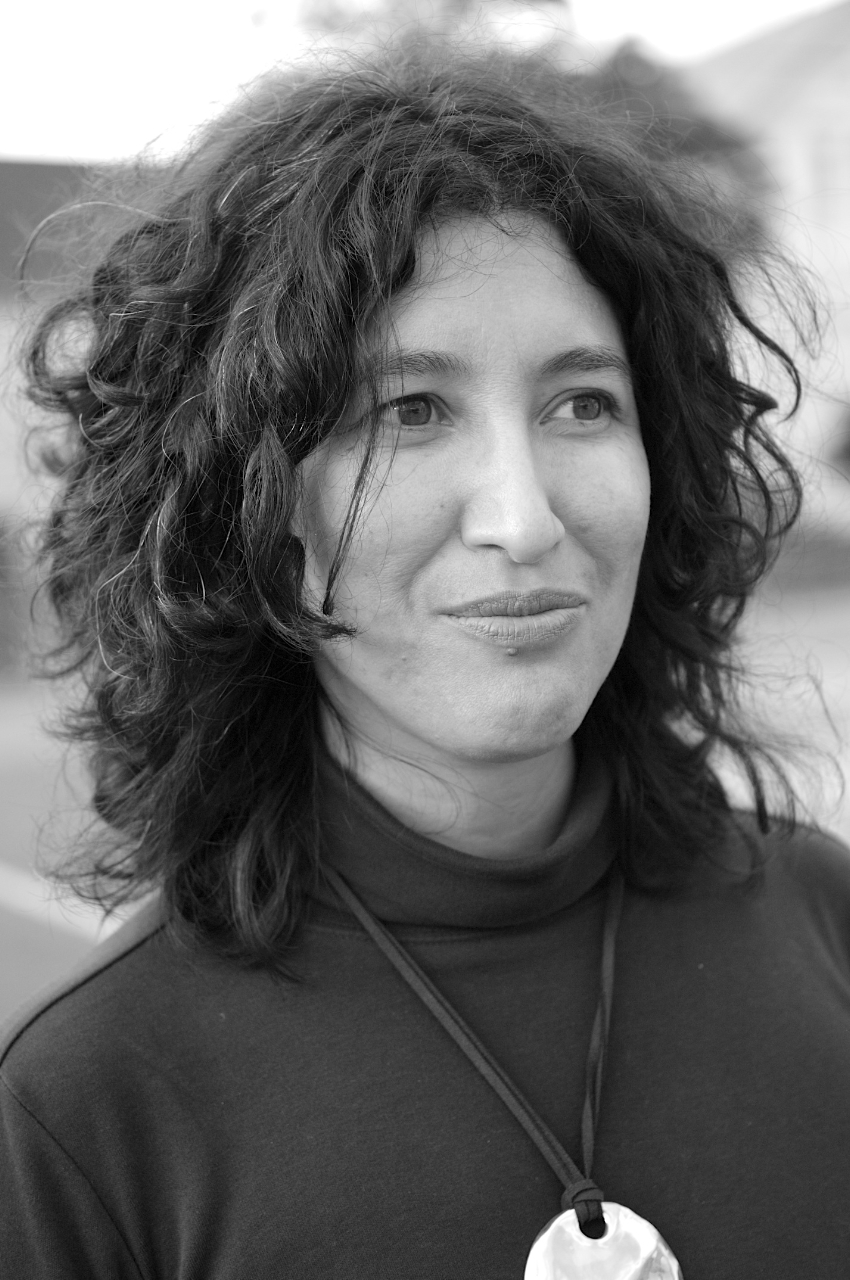
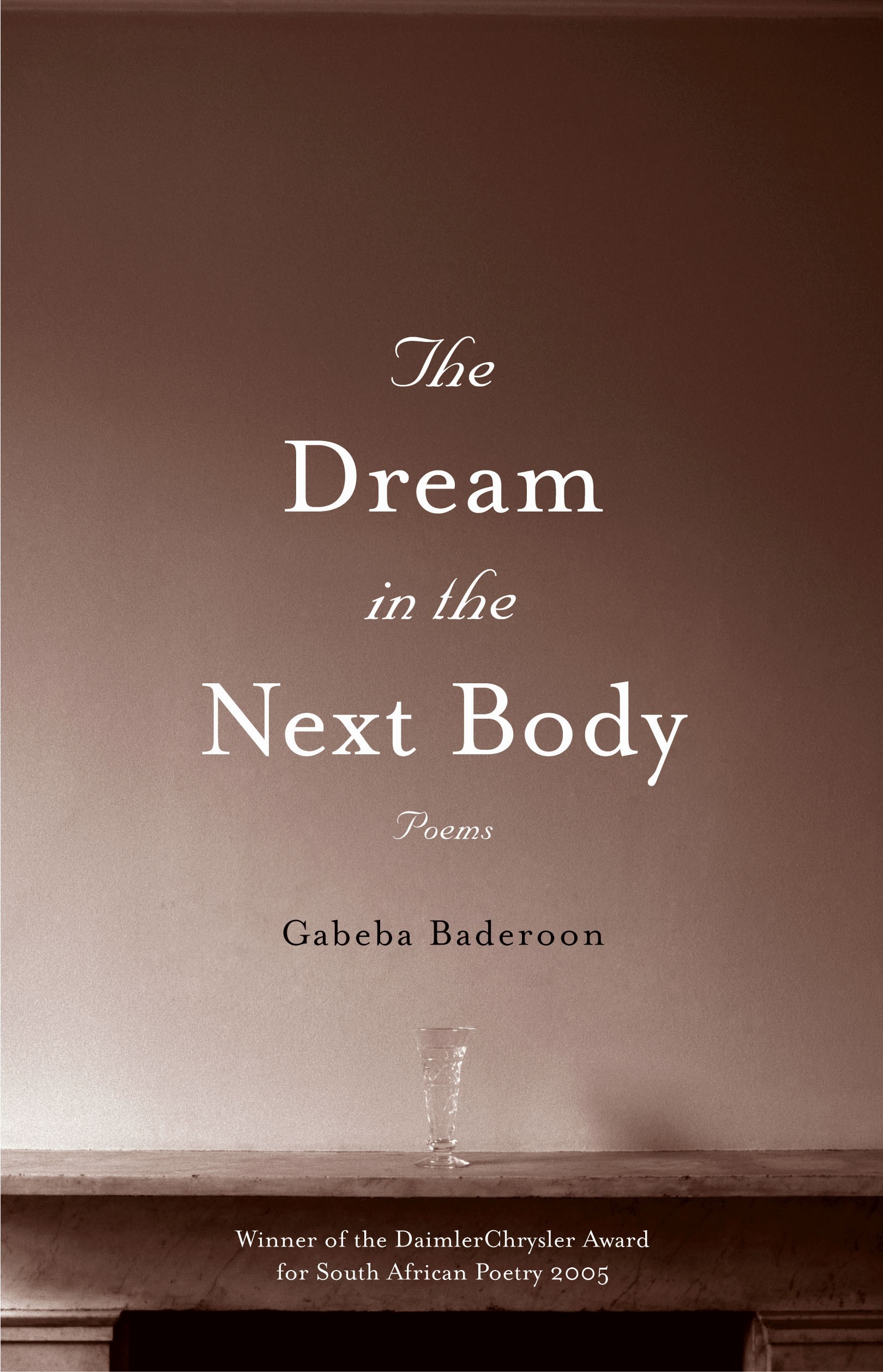
Gabeba’s debut collection, The Dream in the Next Body, was written over the course of six years, drawn from work she had written in evening classes on writing poetry for beginners which she began to attend in September 1999. Two of the friends with whom she had shared her “homework”, Keorapetse Kgositsile and Ingrid Fiske, sent the poems to Gus Ferguson, the well-known editor at Snailpress poetry publishers. That act of generosity by the two eminent writers led to the publication of The Dream in the Next Body in 2005. The Dream sold out its first print run in six weeks and ultimately sold over 3000 copies. Its poems received the Daimler Chrysler Award for South African Poetry in 2005 and led to invitation to South African and international poetry festivals. (Kwela/Snailpress, 2005)
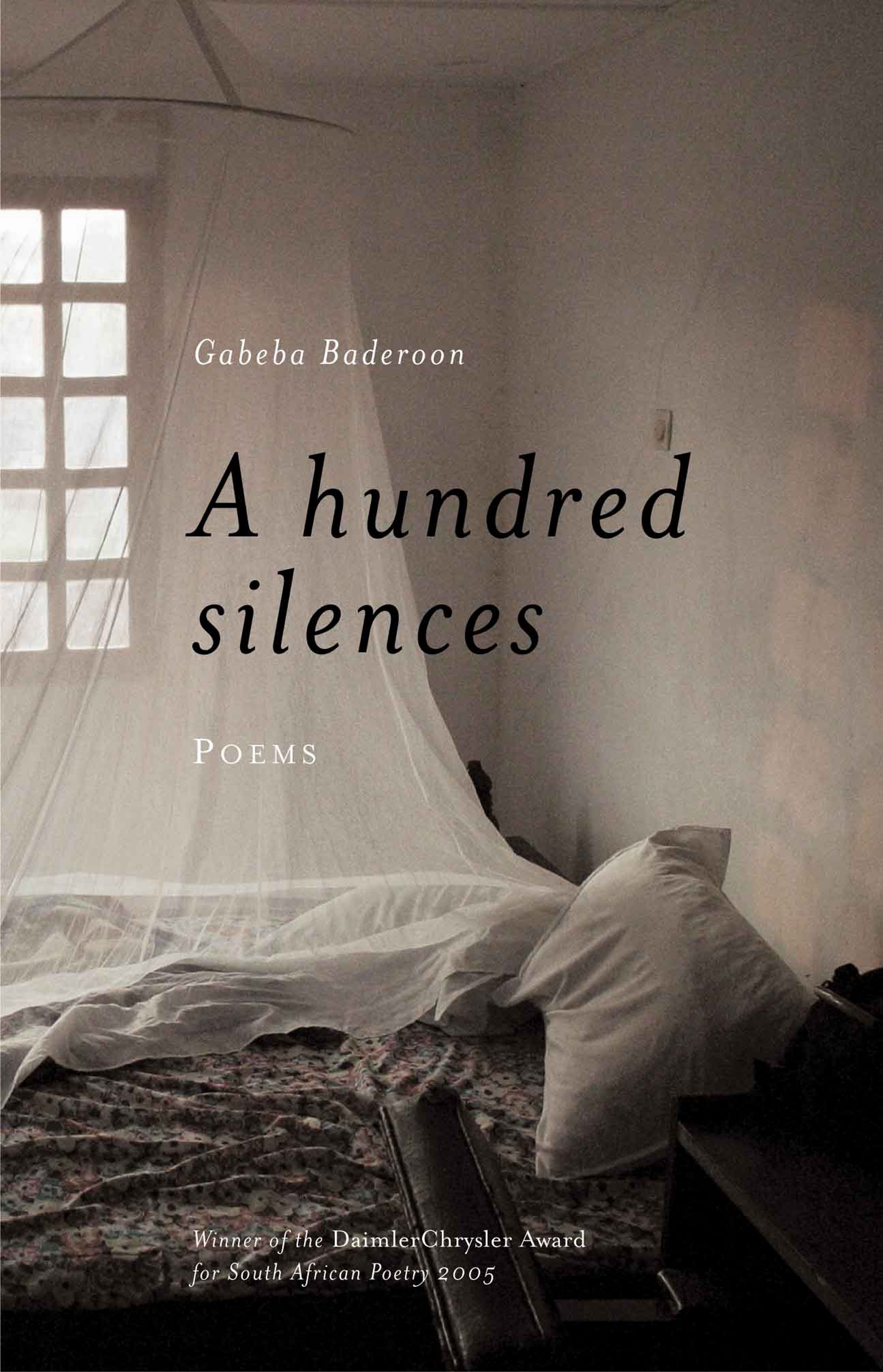
This second collection allowed Gabeba to explore the formal and thematic range she had established as her poetic terrain in The Dream in the Next Body. Beloved poems like “Give,” about the memory of her father fishing on the West Coast, and “I Forget to Look,” a riveting account of her mother’s experience of being asked to leave the autopsy of a white body as a medical student, remain often requested and reprinted. Recently, “The pen,” the final poem in A hundred silences, was the subject of an episode of Poetry Unbound. The collection was a finalist for the University of Johannesburg Prize for South African Writing. (Kwela/Snailpress, 2006)
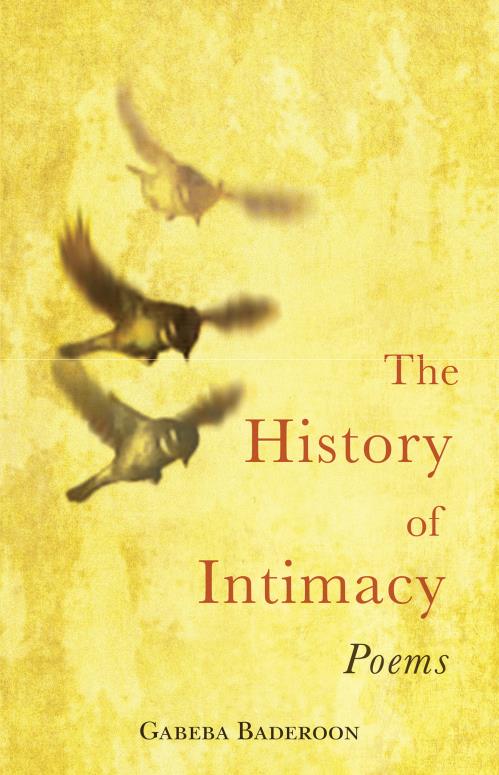
The History of Intimacy, Gabeba's third full collection, took twelve years to bring to completion. The poems begin with tender, tangled accounts of the 1990s in South Africa and the unknown forms of music, kinship, and even self the speaker experiences in “the new, intricate country / we understood was impossible.” The collection expands into the intricacies of moving countries. Gazing at black-and-white photos from back home, a woman newly in the United States realizes, “Memory doesn’t come to me straight.” Conversations overheard in the queue to renew her Driver’s License reveal the complex nature of identity. When asked to name the color of her skin, a girl confides, “It was the first time I admitted / I loved the skin of white boys.” The poems are also light-hearted. In “Ghost Technologies,” about romance in the early days of the internet, the speaker recalls “when we loved each other on dial-up.” The collection begins and ends with poems on writing, paying tribute to poets such as Keorapetse Kgositsile and Archie Markham who taught the poet that “a border / is a place of yielding or refusing to yield / for after refusal might lie a new country.” The History of Intimacy was met with broad acclaim and received several awards, including the Elisabeth Eybers Poetry Prize, the University of Johannesburg Prize for South African Writing and the Best Poetry Book award from the National Institute for the Humanities and Social Sciences. The South African edition of History was published by Kwela in 2018 and a US edition came out with Northwestern University Press in 2021. The latter features a new poem, “Green Pincushion Proteas.” (Kwela, 2018, Northwestern, 2021)
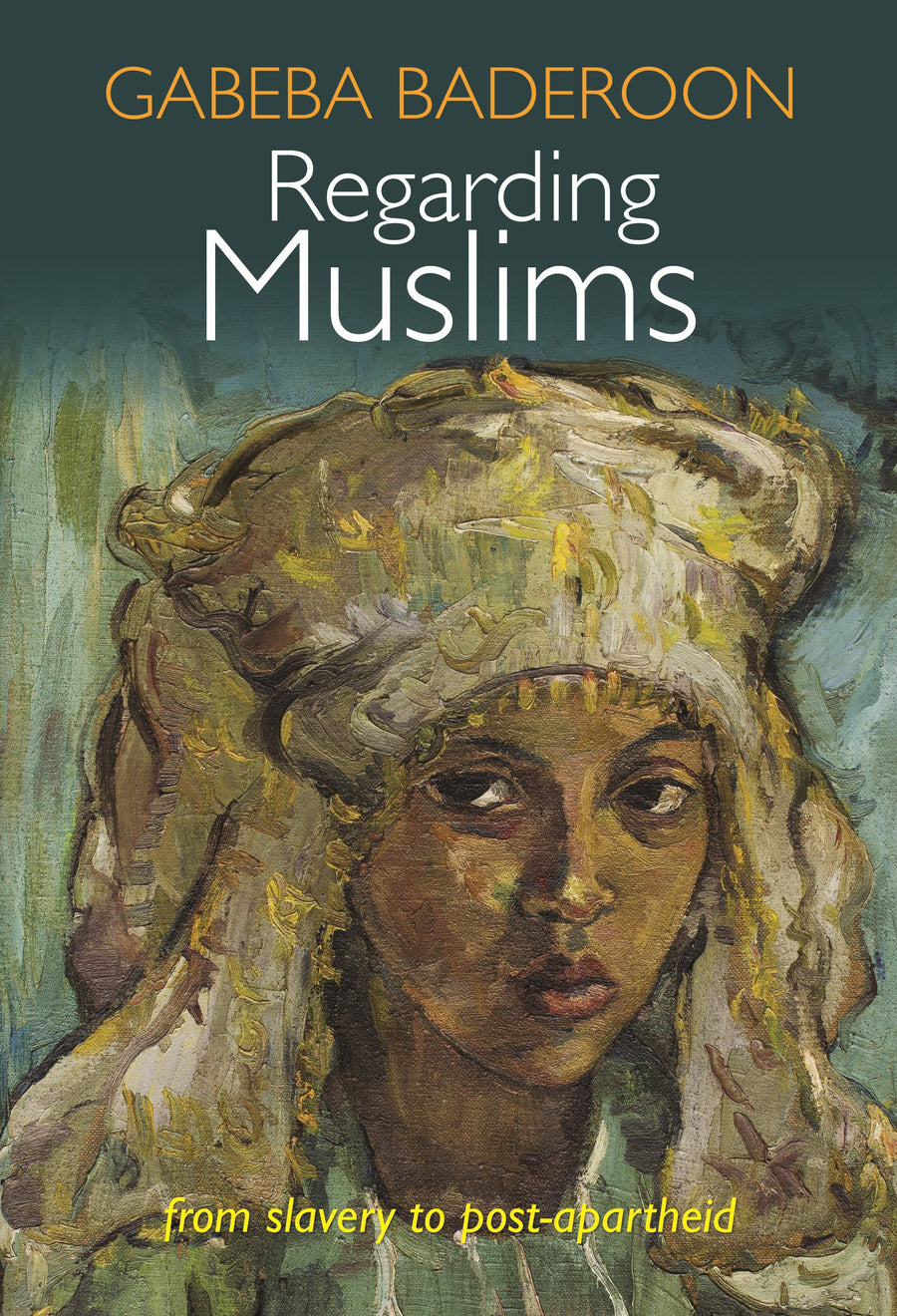
Regarding Muslims: From Slavery to Post-Apartheid, el premiado trabajo de Gabeba sobre imágenes del Islam en Sudáfrica analiza representaciones desde pinturas de personas esclavizadas musulmanas durante el período colonial hasta representaciones literarias y artísticas del período post-apartheid. The book received over twenty academic reviews and its chapters on food, landscape and sexuality are widely cited and taught. Regarding Muslims is found in over 1200 libraries across the world and received a Best Non-Fiction Monograph Award from the National Institute for the Humanities and Social Sciences in 2017. Regarding Muslims se encuentra en más de 1200 bibliotecas y recibió el premio a la Mejor Monografía de no ficción del Instituto Nacional de Humanidades y Ciencias Sociales de Sudáfrica en 2017.
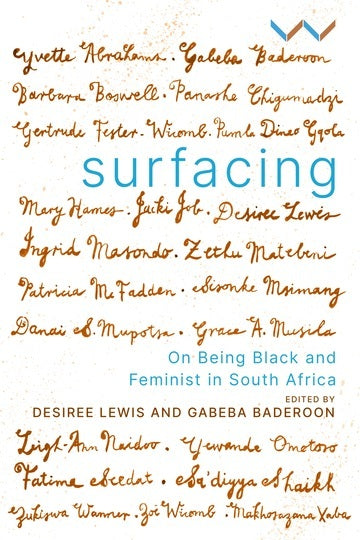
Surfacing is the first published collection of essays by Black South African feminists. Long-awaited and warmly received, Surfacing was hailed for the depth and complexity of its engagements, its innovative use of the personal essay, and the beauty of the writing in its introduction and twenty essays. The book received the Best Edited Collection Award from the National Institute for the Humanities and Social Sciences in 2022. Surfacing is indispensable to anyone interested in feminism from Africa. Surfacing es un libro indispensable para cualquier persona interesada en los feminismos de África. (Wits Press, 2021)